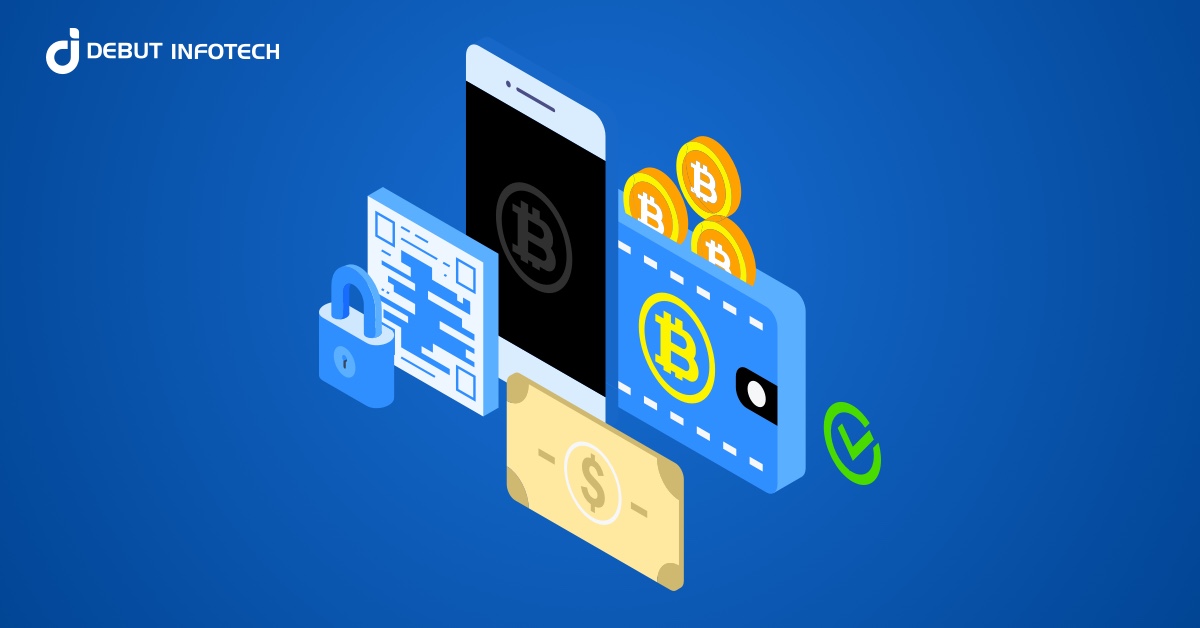In the fast-paced world of cryptocurrency, a robust and secure wallet is the cornerstone of any successful digital asset management strategy. As businesses and individuals increasingly turn to cryptocurrency wallet development services to safeguard their assets, the demand for sophisticated and reliable solutions continues to grow. In this article, we delve into the intricacies of cryptocurrency wallet development, exploring the key features, benefits, and technical aspects that make these services indispensable in today’s digital economy.
Understanding Cryptocurrency Wallets
At its core, a cryptocurrency wallet is a software program that stores private and public keys and interacts with various blockchain networks to enable users to send and receive digital currency and monitor their balance. These wallets are essential for the secure storage and transaction of cryptocurrencies such as Bitcoin, Ethereum, and a plethora of altcoins.
Types of Cryptocurrency Wallets
There are several types of cryptocurrency wallets, each offering different levels of security, accessibility, and convenience:
- Hot Wallets: These are connected to the internet and are more accessible but less secure. They include web wallets, mobile wallets, and desktop wallets.
- Cold Wallets: These are offline wallets that provide a higher level of security by storing keys on hardware devices or paper. Hardware wallets and paper wallets fall under this category.
- Multi-Signature Wallets: These wallets require multiple private keys to authorize a transaction, providing an additional layer of security.
- Custodial Wallets: In custodial wallets, a third party holds the user's private keys, simplifying the process for the end user but introducing reliance on the custodian's security measures.
- Non-Custodial Wallets: These wallets give users complete control over their private keys, offering maximum security and independence.
Key Features of Cryptocurrency Wallet Development Services
When selecting a cryptocurrency wallet development service, it’s crucial to consider the following key features that ensure the wallet’s functionality, security, and user experience:
1. Enhanced Security Measures
Security is the most critical aspect of any cryptocurrency wallet. Developers implement multiple layers of security protocols, including:
- Two-Factor Authentication (2FA): Adds an additional security layer by requiring a second form of verification, such as a text message or email code.
- Multi-Signature Support: This feature requires multiple signatures for transactions, significantly reducing the risk of unauthorized access.
- Biometric Authentication: Utilizes fingerprint or facial recognition for an added layer of security in mobile wallets.
- Encryption: Advanced encryption techniques ensure that all user data, including private keys, remain secure and inaccessible to unauthorized parties.
2. User-Friendly Interface
A well-designed wallet must cater to users of all experience levels. A user-friendly interface enhances the user experience by offering:
- Intuitive Navigation: Simplified menus and clear instructions make it easy for users to perform tasks such as sending and receiving cryptocurrencies.
- Customizable Dashboards: Users can personalize their dashboard, organizing their digital assets in a way that best suits their needs.
- Multi-Language Support: Accessibility to a global audience is crucial, and multi-language support broadens the wallet’s usability.
3. Cross-Platform Compatibility
A top-notch cryptocurrency wallet should be accessible across multiple platforms, including:
- Web-Based Access: For users who prefer to manage their assets via a browser, web-based wallets offer flexibility without compromising security.
- Mobile Applications: Mobile wallets provide on-the-go access, enabling users to manage their cryptocurrencies from anywhere.
- Desktop Applications: For those who prefer desktop environments, dedicated applications offer a robust and secure platform for asset management.
4. Multi-Currency Support
With the vast array of cryptocurrencies available, it’s vital that a wallet supports a broad range of digital currencies. This includes:
- Popular Cryptocurrencies: Bitcoin, Ethereum, Litecoin, and other leading coins.
- Altcoins: Support for lesser-known or emerging cryptocurrencies, catering to users looking to diversify their portfolios.
5. Integration with Decentralized Applications (DApps)
As the decentralized ecosystem grows, wallets that offer DApp integration are becoming increasingly popular. This feature allows users to interact with decentralized exchanges, lending platforms, and other blockchain-based applications directly from their wallet.
6. Transaction History and Tracking
A comprehensive transaction history feature allows users to track their spending, manage their portfolio, and maintain accurate records for tax purposes. Detailed reports and real-time tracking provide transparency and accountability.
Conclusion
Cryptocurrency wallet development is a complex and multifaceted process that requires a deep understanding of blockchain technology, security protocols, and user experience design. By leveraging professional cryptocurrency wallet development services, businesses and individuals can ensure that their digital assets are managed securely and efficiently, providing peace of mind in an ever-evolving digital landscape.






Comments